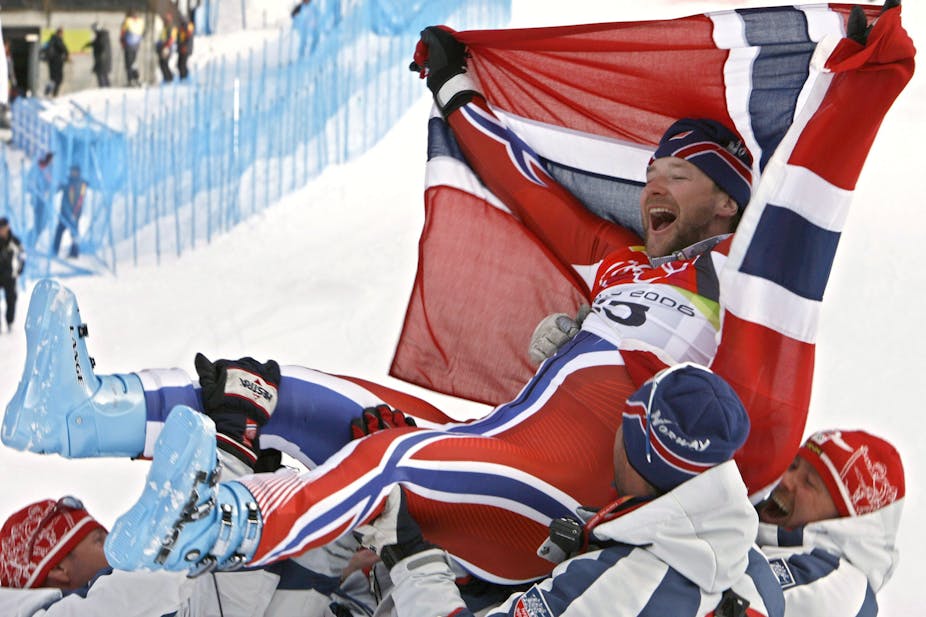The Norwegian government has withdrawn Oslo’s bid to host the 2022 Winter Olympics. Despite the country’s great wealth, it cited concerns over the cost of hosting the event. Oslo was the favourite of the three remaining cities in the race after three other cities also withdrew their bids in recent months. Admittedly one was in Ukraine, but St Moritz in Switzerland and Munich in Germany also previously decided against going ahead with bids. It leaves just Beijing and Almaty in Kazakhstan still in the running.
It has been suggested that Oslo was the preferred choice for the International Olympic Committee (IOC) and it certainly scored the highest marks in the committee’s recent assessment of the competing bid applications. One response from the IOC executive director to the news of Norway’s decision smacked of a suitor scorned. The strongly worded statement noted that “senior politicians in Norway appear not to have been properly briefed on the process and were left to take their decisions on the basis of half-truths and factual inaccuracies”.
The perfect match
It is easy to see why Oslo would have been a good fit for the 2022 event. The Norwegians have a strong tradition of winter sports and have won more medals in the winter games than any other nation. Yet as Norway’s prime minister, Erna Solberg, said in a press statement: “A big project like this, which is so expensive, requires broad popular support and there isn’t enough support for it.”
The ruling party had been up against the opposition of both the public and the minority partner in the coalition. On the same day as Solberg’s statement, a Norwegian paper ran a story that revealed details of the IOC’s hospitality requirements for bidding cities. The headline was: “IOC requires free liquor at the stadium and a cocktail party with the king.”

We have known for some time that many mega events are first sold on a shaky platform of underestimated costs and overestimated benefits. It doesn’t help Olympics planners that security concerns dominate news coverage as the spectre of terrorist attacks surrounds every Olympic Games irrespective of where they are held. The massive amount of security needed is of course another reason why the cost of staging any such event is now so high.
Sochi 2014 in Russia was by far the most expensive Winter Olympics ever. It cost US$51bn, compared to $6.4bn for Vancouver 2010 and more than $14bn for London 2012. Sochi has in some ways raised the bar for the winter games as Beijing 2008 did for the summer version.
Although big infrastructure requirements pushed up the costs, this huge Russian project unhelpfully highlighted the political opportunity that the Olympics represents to many countries. This despite the fact that for many years, the often-repeated maxim was that sport and politics do not mix, or that sport should not be political.

Sochi also led to an increased focus on international concerns about Russia’s human rights issues, changes to its laws on promoting homosexuality and the environmental damage in turning the seaside resort of Sochi into a world-class winter sports destination. Not all countries might welcome this exposure, All the same, the Sochi games were still a success. The games always are. Nothing is left to chance and every aspect of a mega-event spectacle is carefully managed and controlled.
Some reform, some business as usual
It is likely that there will be some changes to the bidding process, whose costs can run to $100m. The IOC is reported to be considering changes to facilitate reducing the cost of both bidding for and staging the games.
But it is also important to note here that the winter games have never been the Olympics. In the sporting landscape they are Phil not Gary (Neville) and it would be premature to suggest that we are witnessing the beginning of the end of the exponential growth of the Olympic juggernaut. Much of the international press coverage about the news from Norway will use the word “winter” as a prefix to Olympics.
It also seems to me that the actual host city matters less and less from the point of view of the events organiser. The VIP traffic lanes, strict security procedures and hefty allocation of tickets to corporate partners mean that the insiders and outsiders are ever more clearly demarcated.
And of course there are still two cities actively pursuing the votes to stage the Winter Olympics. Interestingly, one of the two cities left in the race for 2022 is Beijing. If it is chosen as host then the Chinese capital will become the first city to have ever hosted both the summer and winter Olympiad. The competing bid from Almaty, Kazakhstan did not score as highly as Beijing or Olso in the IOC’s assessment earlier this year. Beijing has never really struck me as a winter sports destination, I must admit.
Whatever the games’ problems, Olympics organisers can always reassure themselves that one of the great challenges for any mega event in the 21st century is to be more “mega” than the last. Wherever the games are held, there will probably always be a country which is willing to fulfil that brief.

